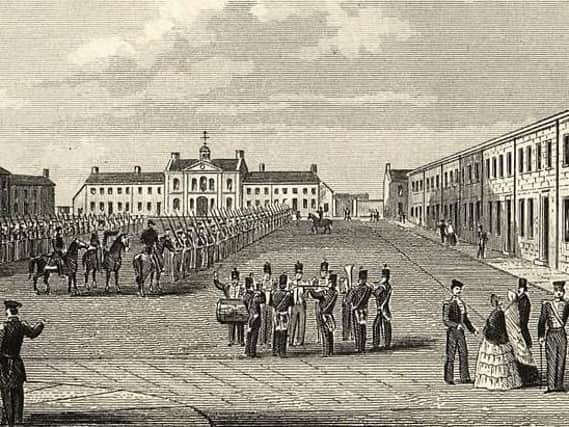Preston army sergeant dies from wound sustained in battle years before


On the third Tuesday of November 1905 Sergeant Edwin Viggars, of the Royal Field Artillery, stationed at Fulwood Barracks took a squad of recruits for a midday drill on the barracks square. In typical military manner the sergeant barked out his orders and the recruits responded accordingly marching to and fro for over an hour.
The drill completed Sgt. Viggars retired to the Sergeants Mess to quench his thirst with a glass of beer. As he began to drink the ale he uttered a strange gurgling noise and threw himself forward on his hands. Sergeant Cooper who witnessed the incident helped to carry him to a couch, and the medics were alerted. Unfortunately, despite their quick arrival he had expired before they good assist him.
Advertisement
Hide AdAdvertisement
Hide AdAfter the two unfortunate deaths in Fulwood Barracks during the previous month there was great shock at another untimely death. The following afternoon the Coroner Harold Parker held an Inquest within the Fulwood Barracks.
It was reported that his general health had been good, but he had complained of pains in his chest, which had been caused by the handspike of a gun recoiling and striking him on the chest when in South Africa in 1901 during the Boer War. Corporal Farrelly, who had been on the battlefield with him, recalled how he had seen the incident and that ever since the deceased had complained of chest pains. Remarking that Sgt. Viggars had persistently neglected to procure medical attention.
Lieut. Colonel Daley who carried out the post-mortem stated that he had found that an aneurysm of the aorta had burst and it was likely to have been caused by the war wound. In his opinion it was likely to have come on gradually. After a brief summing up by the coroner the jury returned a verdict of ‘Accidental Death’. A few days later the funeral of the Boer War veteran took place with full military honours at Preston Cemetery. Ironically, only a couple of weeks earlier Sgt. Viggars had been in charge of the firing party at the funeral of Driver Watson in the same graveyard.
The whole of the depot paraded in the barracks square before marching to the Garrison Church where a short service was held. Then a procession to the cemetery got under way with the coffin, draped in the Union Jack and with the helmet of the deceased on top, lashed to a gun carriage. Behind came the horse of the deceased, his top boots being fixed reverse way in the stirrups. All along the route crowds gathered to witness the solemn parade and after his remains were lowered into the grave tears were shed as the ‘Last Post’ was sounded.
A year later a brass tablet was unveiled in the Garrison Chapel in the memory of Sgt. Viggars and Gunner Iddenden to mark their deaths in such tragic circumstances.